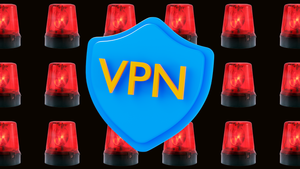An organisation representing VPN operators has urged the copyright industries to abandon moves to force VPNs to implement web-blocking orders against piracy websites.
It also asks the French courts - where those moves are currently being pursued - to reject the web-blocking requests which, it says, “not only misplace blame but also threaten to undermine cybersecurity, privacy and digital freedom for millions of French residents”.
The courts, it says, should instead prioritise upholding “privacy and security for all citizens” while protecting “the foundational principles of an open internet”.
“History has shown that restrictions targeting digital infrastructure fail to address the root causes of piracy”, argues the VPN Trust Initiative in response to web-blocking legal action launched against its members by French broadcaster Canal+.
“Despite increasing legal pressures on infrastructure providers to tackle content problems on their networks, global piracy rates rise”, it adds, claiming that “focusing on content-neutral tools like VPNs rather than addressing the sources of illegal content not only fails to combat piracy but creates and inflicts collateral damage to cybersecurity and privacy, putting users at risk”.
Web-blocking is an anti-piracy tactic of choice for the music, movie and other copyright industries. Copyright owners get injunctions from the courts, or sometimes a government agency, ordering internet companies to block their customers from accessing piracy websites that facilitate copyright infringement.
It’s usually internet service providers that are initially targeted with web-blocking injunctions. In most countries, the ISPs initially complain when web-blocking is new, but then comply once it becomes a standard anti-piracy practice.
Web-blocks are by no means a perfect solution, not least because it’s relatively easy for people to circumvent the blockades, for example by using a third party DNS-resolver rather than the one provided by their ISP, or by using a virtual private network, or VPN.
A lot of high level content consumers online will already be using a VPN, for privacy and security reasons, and/or to access content on video streaming platforms that is geo-blocked in their home countries. Once using a VPN, it can also be used to access websites that have been blocked by a user’s ISP.
To that end, in more recent years some copyright owners have been looking to expand their web-blocking activities to other kinds of internet providers. Canal+ has already gone after third party DNS resolvers operated by Cloudflare, Google and Cisco through the French courts. Cisco responded by withdrawing its OpenDNS service from the French market entirely.
The broadcaster has now teamed up with the French football league, LPF, to seek web-blocking injunctions against VPNs including NordVPN, ExpressVPN and ProtonVPN, looking to block websites that illegally stream football matches that Canal+ has the exclusive rights to broadcast within France.
Both Canal+ and LPF will be hoping that - after a French court issued web-blocking injunctions against DNS resolvers - it will now do the same for VPNs. If it does, the music industry may seek similar injunctions against music piracy sites, both Sony Music and Universal Music having previously sought web-blocks against DNS resolvers, albeit with mixed success.
The VPN Trust Initiative is presumably aware that, if Canal+ is successful in this case, there could be a flurry of additional web-blocking requests against its members.
Which is why it is speaking out. Calling on copyright owners like Canal+ to “reconsider their approach” to fighting online piracy, VTI adds, “Collaboration with all stakeholders could achieve more effective solutions without compromising cybersecurity, privacy, or digital freedoms”.

